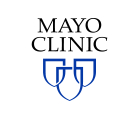Functional Dyspepsia Treatment Trial
| Status: | Completed |
|---|---|
| Conditions: | Gastroesophageal Reflux Disease , Gastrointestinal |
| Therapuetic Areas: | Gastroenterology |
| Healthy: | No |
| Age Range: | Any |
| Updated: | 11/11/2012 |
| Start Date: | October 2006 |
| End Date: | July 2013 |
| Contact: | Katherine E Tilkes |
| Email: | tilkes.katherine@mayo.edu |
| Phone: | 877-825-8999 |
Antidepressant Therapy for Functional Dyspepsia
The investigators propose to examine whether antidepressant medications are efficacious in
functional dyspepsia. The prescription of antidepressants to treat functional dyspepsia is
based on three propositions. First, antidepressants could reduce the severity of co-morbid
psychological symptoms, especially anxiety and depression. Second, antidepressants have
central analgesic actions. Third, antidepressants have been shown to have local
pharmacological actions on the gut, and may specifically alter gastric emptying and fundic
relaxation based on preliminary data, but the relevance of such perturbations to treatment
outcome is not established.
In a parallel group, double blind, randomized, placebo-controlled adequately powered
three-arm,multi-center trial, the aims of the present study are to:
1. Determine whether antidepressant therapy is more efficacious than placebo in relief of
the symptoms of functional dyspepsia, adjusting for psychological and psychiatric
co-morbidity. The investigators will also determine if antidepressant therapy reduces
disability, improves quality of life and influences clinical response over 6 months
after ceasing medication.
2. Determine if gastric emptying (motor dysfunction) and the nutrient drink test (a test
that assesses gastric hypersensitivity and/or gastric accommodation) is altered by
antidepressant therapy with a tricyclic or SSRI, and whether subgroups with altered
physiology are associated with treatment outcome. In a sub-study, the investigators
will directly determine if impaired gastric accommodation (by a novel validated
non-invasive imaging method using 99mTc-SPECT) and the symptom response to a nutrient
drink test is altered by an SSRI or tricyclic antidepressant.
3. Determine if polymorphisms of GNβ3 and the serotonin reuptake transporter predict
outcome in functional dyspepsia patients receiving a tricyclic antidepressant or SSRI
therapy.
Inclusion Criteria:
- Patients will have had in the prior 5 year, a normal esophagogastroduodenoscopy (EGD)
(no esophagitis, Barrett's esophagus, cancer, erosions, or ulcer disease), and will
have been diagnosed with functional dyspepsia after specialist consultation.
- Patients will have failed to adequately respond to antisecretory therapy in the past
for functional dyspepsia to be suitable; a good response to antisecretory therapy,
which remains first line therapy, suggests underlying GERD (8).
Exclusion Criteria:
- Any documented history of endoscopic esophagitis, or predominant heartburn or acid
regurgitation, or these symptoms two or more times per week in the prior year, to
exclude GERD.
- Those who have had an adequate response to antisecretory therapy according to the
physician interview, to exclude patients with disease easy to control with first line
therapy or misdiagnosed GERD.
- Any documented peptic ulcer disease.
- Regular use of non-steroidal anti-inflammatory drugs (except long term low dose
aspirin).
- Subjects undergoing psychiatric treatment, having a history of drug or alcohol abuse,
or currently taking psychotropic medication (psychiatric diagnoses will not be an
exclusion, except for psychosis).
- A history of abdominal surgery except appendectomy, cholecystectomy or hysterectomy
more than one year previously.
- Subjects with concurrent major physical illness (including cardiac or liver disease,
diabetes, inflammatory bowel disease, glaucoma, urinary retention, active thyroid
disease, vasculitis, lactose intolerance explaining symptoms), psychotic illness or
eating disorder.
- Subjects whose literacy skills are insufficient to complete self report
questionnaires.
- Pregnancy, or refusal to apply adequate contraceptive measures during the trial.
We found this trial at
7
sites
Mayo Clinic - Jacksonville Thousands of people come to Mayo Clinic in Jacksonville, Fla., annually...
Click here to add this to my saved trials
Baylor College of Medicine Baylor College of Medicine in Houston, the only private medical school...
Click here to add this to my saved trials
Click here to add this to my saved trials
Dartmouth Hitchcock Medical Center Dartmouth-Hitchcock is a national leader in patient-centered health care and building...
Click here to add this to my saved trials
Mayo Clinic Mayo Clinic's campus in Arizona provides medical care for thousands of people from...
Click here to add this to my saved trials
Mayo Clinic Rochester Mayo Clinic is a nonprofit worldwide leader in medical care, research and...
Click here to add this to my saved trials
Click here to add this to my saved trials




